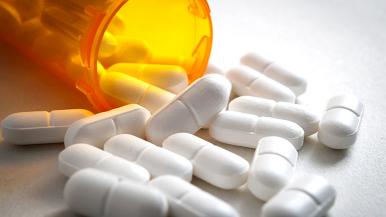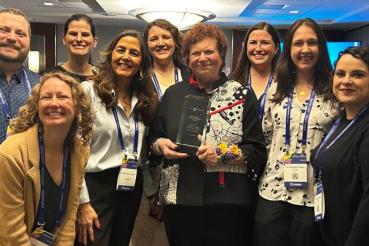As we age, the number of prescription and over-the-counter medications we use tends to go up: The Centers for Disease Control and Prevention says that more than 20% of American adults age 40 to 79 use five or more prescription drugs.
The more medications you take, the more prone you can be to drug interactions, errors or other issues that can quickly become serious. “Between 10 and 20 percent of hospital admissions are related to problems with medication,” says Kirk Dennis, PharmD, a pharmacist at RUSH. Dennis talks with people every day about how to manage their medications safely, and shared his list of the top five things everyone should know.
1. Carry a list of your current medications.
Because providers need to know what you’re already taking before they evaluate you or prescribe anything new, “you should always have a document with you that lists all your medications — including supplements and over-the-counter drugs — along with their dosages and how often you take them,” Dennis says. If you have a smartphone, you can keep your list updated in a notes app or take a photo of your written list.
2. Use the same pharmacy for all your prescriptions.
Seeing multiple specialists can mean juggling multiple prescriptions. “If all of your medications are at a single pharmacy, we can make one phone call to get any information we need,” Dennis said. “Different providers might want to send prescriptions to different pharmacies, but let them know up front that you have a preferred pharmacy.”
3. Your pharmacist is there to help.
Dennis tells the story of a friend who recently started taking a medication whose label said “take four tablets daily” — but she didn’t know if she was supposed to take them together or throughout the day. “Nobody told her that she should take all four at once in the morning,” he said, so she asked her pharmacist for instructions. “Labels can be super confusing sometimes, and your pharmacist is a great resource,” Dennis says.
4. Take medication as directed, for as long as you’re supposed to.
“We often hear people say, ‘Well, I felt better, so I stopped taking my medication,’ for everything from blood pressure medication to antibiotics,” Dennis said. “Don’t stop taking a medication without talking to your provider first.” And, he added, don’t crush pills or open capsules unless your pharmacist okays it; doing so can affect medication’s effectiveness and safety.
5. Don’t ever take anyone else’s medication.
If you’re having back pain after gardening, don’t reach for your spouse’s prescription pain medication. “It can be tempting to just take whatever’s in the house, but you always need to be evaluated by a provider before you start any medication,” Dennis says. If you need help with the cost of your medication, ask your pharmacist about discount programs or financial assistance provided by drug manufacturers.




